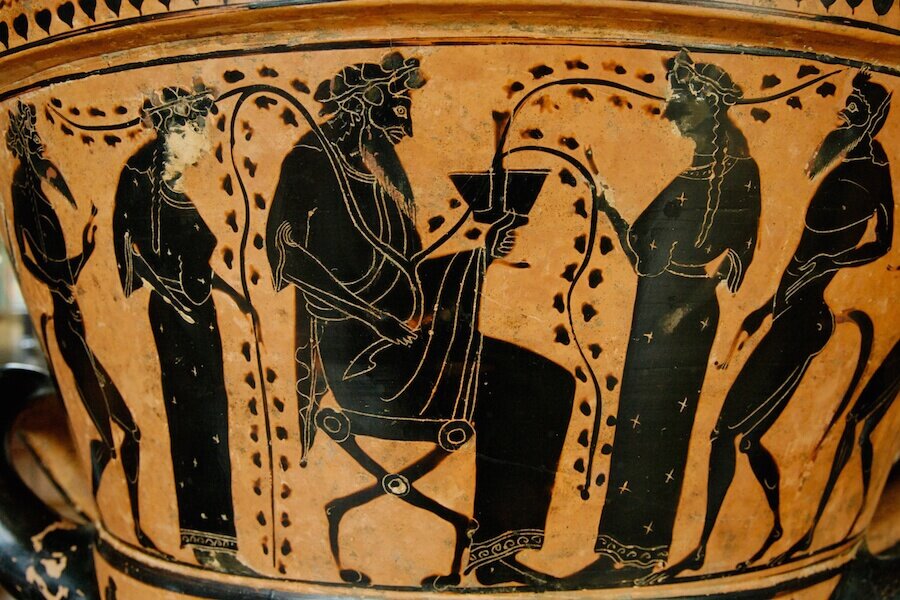
September in Ancient Greece: A Time of Harvest, Myth, and Tradition
In ancient Greece, September was a time of great significance, marking the beginning of the harvest season and the transition from summer to autumn. This period, celebrated through festivals and rituals, was closely tied to agriculture and the reverence for gods like Dionysus, the god of wine, and Demeter, the goddess of harvest. Grapes were picked, crops were gathered, and offerings were made to the gods to ensure continued abundance and prosperity.
Central to these celebrations was the myth of Dionysus and Ampelos. According to legend, when Ampelos, a favored companion of Dionysus, died unexpectedly, the god transformed his body into the first grapevine, thus giving birth to wine. This myth not only emphasized the divine origin of wine but also symbolized the cycle of life, death, and renewal—a theme woven into the fabric of ancient Greek culture.
Demeter and her daughter Persephone were also central figures in September’s rituals. Their story of separation and reunion mirrored the seasonal changes, with Persephone’s descent into the underworld marking the start of the harvest. The Eleusinian Mysteries, held in honor of Demeter, were sacred rites that promised renewal and the continuation of life after death.
Our Dionysus ceramic collection is inspired by this rich heritage, evoking the earthy tones and timeless elegance of ancient Greek craftsmanship. Each piece reflects the stories and symbolism of September’s harvest, bringing the beauty of this ancient season into your home.


Leave a comment